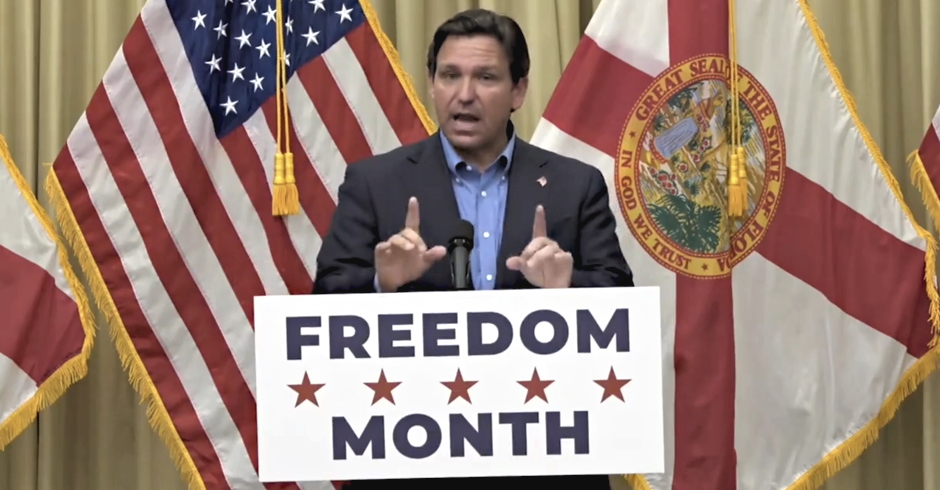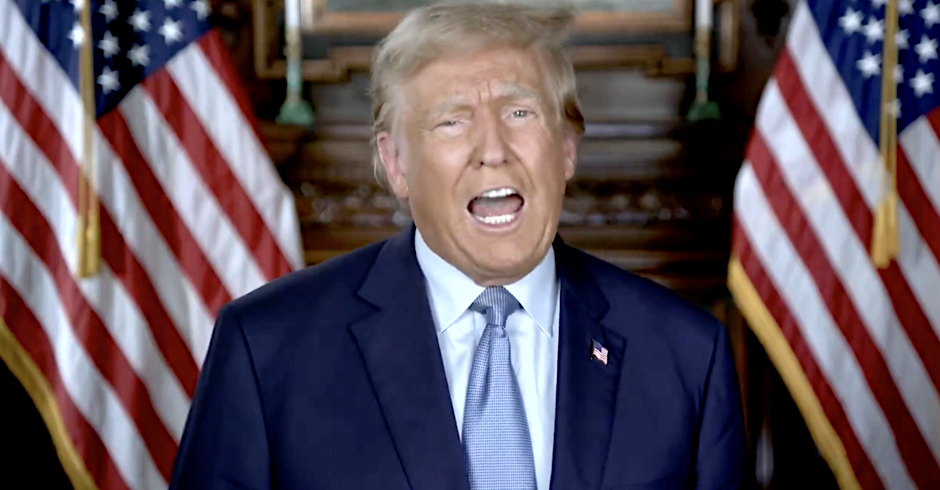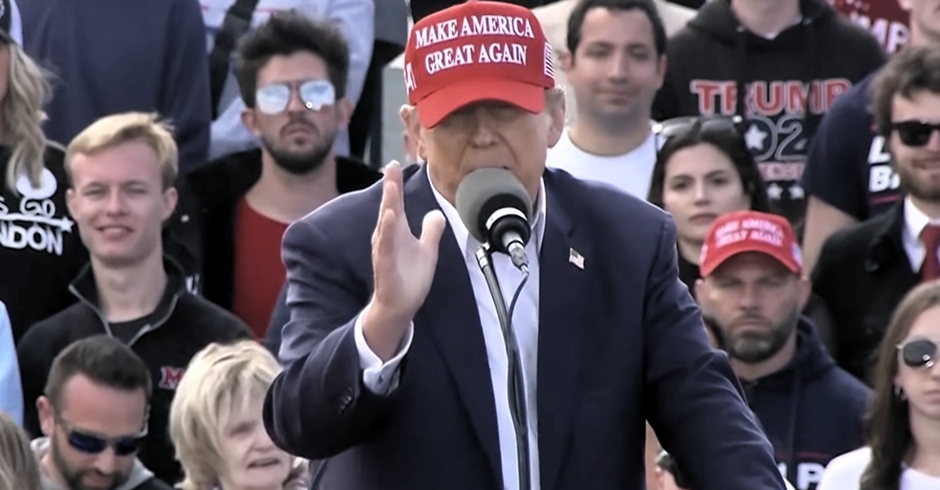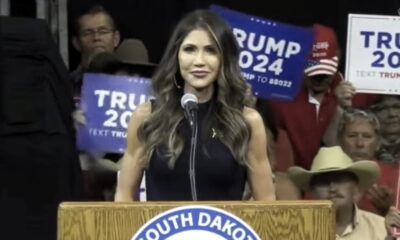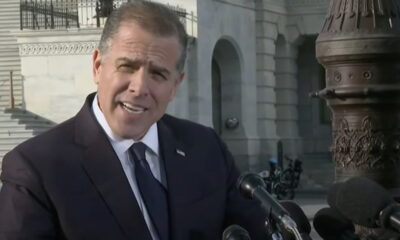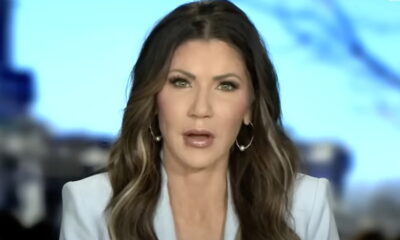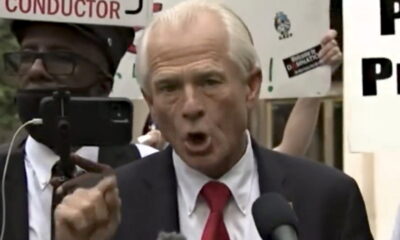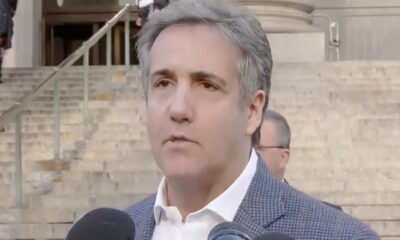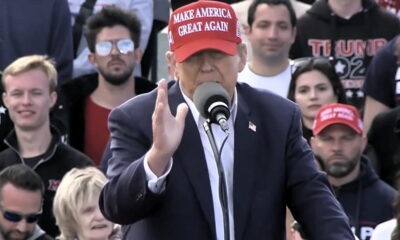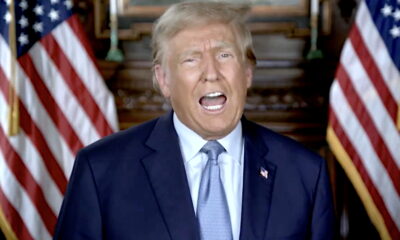President Obama Announces Full Diplomatic Relations With Cuba: Full Video And Text
This afternoon President Barack Obama made an historic announcement: The United States is re-establishing diplomatic ties with Cuba.
Here is the video and below, full text as prepared for delivery, of President Obama’s speech:
Â
THE WHITE HOUSE
Office of the Press Secretary
For Immediate Release December 17, 2014
STATEMENT BY THE PRESIDENT
ON CUBA POLICY CHANGES
Cabinet Room
12:01 P.M. EST
THE PRESIDENT: Good afternoon. Today, the United States of America is changing its relationship with the people of Cuba.
In the most significant changes in our policy in more than fifty years, we will end an outdated approach that, for decades, has failed to advance our interests, and instead we will begin to normalize relations between our two countries. Through these changes, we intend to create more opportunities for the American and Cuban people, and begin a new chapter among the nations of the Americas.
There’s a complicated history between the United States and Cuba. I was born in 1961 –- just over two years after Fidel Castro took power in Cuba, and just a few months after the Bay of Pigs invasion, which tried to overthrow his regime. Over the next several decades, the relationship between our countries played out against the backdrop of the Cold War, and America’s steadfast opposition to communism. We are separated by just over 90 miles. But year after year, an ideological and economic barrier hardened between our two countries.
Meanwhile, the Cuban exile community in the United States made enormous contributions to our country –- in politics and business, culture and sports. Like immigrants before, Cubans helped remake America, even as they felt a painful yearning for the land and families they left behind. All of this bound America and Cuba in a unique relationship, at once family and foe.
Proudly, the United States has supported democracy and human rights in Cuba through these five decades. We have done so primarily through policies that aimed to isolate the island, preventing the most basic travel and commerce that Americans can enjoy anyplace else. And though this policy has been rooted in the best of intentions, no other nation joins us in imposing these sanctions, and it has had little effect beyond providing the Cuban government with a rationale for restrictions on its people. Today, Cuba is still governed by the Castros and the Communist Party that came to power half a century ago.
Neither the American, nor Cuban people are well served by a rigid policy that is rooted in events that took place before most of us were born. Consider that for more than 35 years, we’ve had relations with China –- a far larger country also governed by a Communist Party. Nearly two decades ago, we reestablished relations with Vietnam, where we fought a war that claimed more Americans than any Cold War confrontation.
That’s why -– when I came into office -– I promised to re-examine our Cuba policy. As a start, we lifted restrictions for Cuban Americans to travel and send remittances to their families in Cuba. These changes, once controversial, now seem obvious. Cuban Americans have been reunited with their families, and are the best possible ambassadors for our values. And through these exchanges, a younger generation of Cuban Americans has increasingly questioned an approach that does more to keep Cuba closed off from an interconnected world.
While I have been prepared to take additional steps for some time, a major obstacle stood in our way –- the wrongful imprisonment, in Cuba, of a U.S. citizen and USAID sub-contractor Alan Gross for five years. Over many months, my administration has held discussions with the Cuban government about Alan’s case, and other aspects of our relationship. His Holiness Pope Francis issued a personal appeal to me, and to Cuba’s President Raul Castro, urging us to resolve Alan’s case, and to address Cuba’s interest in the release of three Cuban agents who have been jailed in the United States for over 15 years.
Â
Today, Alan returned home –- reunited with his family at long last. Alan was released by the Cuban government on humanitarian grounds. Separately, in exchange for the three Cuban agents, Cuba today released one of the most important intelligence agents that the United States has ever had in Cuba, and who has been imprisoned for nearly two decades. This man, whose sacrifice has been known to only a few, provided America with the information that allowed us to arrest the network of Cuban agents that included the men transferred to Cuba today, as well as other spies in the United States. This man is now safely on our shores.
Â
Having recovered these two men who sacrificed for our country, I’m now taking steps to place the interests of the people of both countries at the heart of our policy.
Â
First, I’ve instructed Secretary Kerry to immediately begin discussions with Cuba to reestablish diplomatic relations that have been severed since January of 1961. Going forward, the United States will reestablish an embassy in Havana, and high-ranking officials will visit Cuba.
Â
Where we can advance shared interests, we will -– on issues like health, migration, counterterrorism, drug trafficking and disaster response. Indeed, we’ve seen the benefits of cooperation between our countries before. It was a Cuban, Carlos Finlay, who discovered that mosquitoes carry yellow fever; his work helped Walter Reed fight it. Cuba has sent hundreds of health care workers to Africa to fight Ebola, and I believe American and Cuban health care workers should work side by side to stop the spread of this deadly disease.
Now, where we disagree, we will raise those differences directly -– as we will continue to do on issues related to democracy and human rights in Cuba. But I believe that we can do more to support the Cuban people and promote our values through engagement. After all, these 50 years have shown that isolation has not worked. It’s time for a new approach.
Â
Second, I’ve instructed Secretary Kerry to review Cuba’s designation as a State Sponsor of Terrorism. This review will be guided by the facts and the law. Terrorism has changed in the last several decades. At a time when we are focused on threats from al Qaeda to ISIL, a nation that meets our conditions and renounces the use of terrorism should not face this sanction.
Â
Third, we are taking steps to increase travel, commerce, and the flow of information to and from Cuba. This is fundamentally about freedom and openness, and also expresses my belief in the power of people-to-people engagement. With the changes I’m announcing today, it will be easier for Americans to travel to Cuba, and Americans will be able to use American credit and debit cards on the island. Nobody represents America’s values better than the American people, and I believe this contact will ultimately do more to empower the Cuban people.
Â
I also believe that more resources should be able to reach the Cuban people. So we’re significantly increasing the amount of money that can be sent to Cuba, and removing limits on remittances that support humanitarian projects, the Cuban people, and the emerging Cuban private sector.
Â
I believe that American businesses should not be put at a disadvantage, and that increased commerce is good for Americans and for Cubans. So we will facilitate authorized transactions between the United States and Cuba. U.S. financial institutions will be allowed to open accounts at Cuban financial institutions. And it will be easier for U.S. exporters to sell goods in Cuba.
Â
I believe in the free flow of information. Unfortunately, our sanctions on Cuba have denied Cubans access to technology that has empowered individuals around the globe. So I’ve authorized increased telecommunications connections between the United States and Cuba. Businesses will be able to sell goods that enable Cubans to communicate with the United States and other countries.
Â
These are the steps that I can take as President to change this policy. The embargo that’s been imposed for decades is now codified in legislation. As these changes unfold, I look forward to engaging Congress in an honest and serious debate about lifting the embargo.
Â
Yesterday, I spoke with Raul Castro to finalize Alan Gross’s release and the exchange of prisoners, and to describe how we will move forward. I made clear my strong belief that Cuban society is constrained by restrictions on its citizens. In addition to the return of Alan Gross and the release of our intelligence agent, we welcome Cuba’s decision to release a substantial number of prisoners whose cases were directly raised with the Cuban government by my team. We welcome Cuba’s decision to provide more access to the Internet for its citizens, and to continue increasing engagement with international institutions like the United Nations and the International Committee of the Red Cross that promote universal values.
But I’m under no illusion about the continued barriers to freedom that remain for ordinary Cubans. The United States believes that no Cubans should face harassment or arrest or beatings simply because they’re exercising a universal right to have their voices heard, and we will continue to support civil society there. While Cuba has made reforms to gradually open up its economy, we continue to believe that Cuban workers should be free to form unions, just as their citizens should be free to participate in the political process.
Moreover, given Cuba’s history, I expect it will continue to pursue foreign policies that will at times be sharply at odds with American interests. I do not expect the changes I am announcing today to bring about a transformation of Cuban society overnight. But I am convinced that through a policy of engagement, we can more effectively stand up for our values and help the Cuban people help themselves as they move into the 21st century.
To those who oppose the steps I’m announcing today, let me say that I respect your passion and share your commitment to liberty and democracy. The question is how we uphold that commitment. I do not believe we can keep doing the same thing for over five decades and expect a different result. Moreover, it does not serve America’s interests, or the Cuban people, to try to push Cuba toward collapse. Even if that worked -– and it hasn’t for 50 years –- we know from hard-earned experience that countries are more likely to enjoy lasting transformation if their people are not subjected to chaos. We are calling on Cuba to unleash the potential of 11 million Cubans by ending unnecessary restrictions on their political, social, and economic activities. In that spirit, we should not allow U.S. sanctions to add to the burden of Cuban citizens that we seek to help.
To the Cuban people, America extends a hand of friendship. Some of you have looked to us as a source of hope, and we will continue to shine a light of freedom. Others have seen us as a former colonizer intent on controlling your future. José Martà once said, “Liberty is the right of every man to be honest.†Today, I am being honest with you. We can never erase the history between us, but we believe that you should be empowered to live with dignity and self-determination. Cubans have a saying about daily life: “No es facil†–- it’s not easy. Today, the United States wants to be a partner in making the lives of ordinary Cubans a little bit easier, more free, more prosperous.
To those who have supported these measures, I thank you for being partners in our efforts. In particular, I want to thank His Holiness Pope Francis, whose moral example shows us the importance of pursuing the world as it should be, rather than simply settling for the world as it is; the government of Canada, which hosted our discussions with the Cuban government; and a bipartisan group of congressmen who have worked tirelessly for Alan Gross’s release, and for a new approach to advancing our interests and values in Cuba.
Finally, our shift in policy towards Cuba comes at a moment of renewed leadership in the Americas. This April, we are prepared to have Cuba join the other nations of the hemisphere at the Summit of the Americas. But we will insist that civil society join us so that citizens, not just leaders, are shaping our future. And I call on all of my fellow leaders to give meaning to the commitment to democracy and human rights at the heart of the Inter-American Charter. Let us leave behind the legacy of both colonization and communism, the tyranny of drug cartels, dictators and sham elections. A future of greater peace, security and democratic development is possible if we work together — not to maintain power, not to secure vested interest, but instead to advance the dreams of our citizens.
My fellow Americans, the city of Miami is only 200 miles or so from Havana. Countless thousands of Cubans have come to Miami — on planes and makeshift rafts; some with little but the shirt on their back and hope in their hearts. Today, Miami is often referred to as the capital of Latin America. But it is also a profoundly American city -– a place that reminds us that ideals matter more than the color of our skin, or the circumstances of our birth; a demonstration of what the Cuban people can achieve, and the openness of the United States to our family to the South. Todos somos Americanos.
Change is hard –- in our own lives, and in the lives of nations. And change is even harder when we carry the heavy weight of history on our shoulders. But today we are making these changes because it is the right thing to do. Today, America chooses to cut loose the shackles of the past so as to reach for a better future –- for the Cuban people, for the American people, for our entire hemisphere, and for the world.
Thank you. God bless you and God bless the United States of America.
END 12:16 P.M. EST

Enjoy this piece?
… then let us make a small request. The New Civil Rights Movement depends on readers like you to meet our ongoing expenses and continue producing quality progressive journalism. Three Silicon Valley giants consume 70 percent of all online advertising dollars, so we need your help to continue doing what we do.
NCRM is independent. You won’t find mainstream media bias here. From unflinching coverage of religious extremism, to spotlighting efforts to roll back our rights, NCRM continues to speak truth to power. America needs independent voices like NCRM to be sure no one is forgotten.
Every reader contribution, whatever the amount, makes a tremendous difference. Help ensure NCRM remains independent long into the future. Support progressive journalism with a one-time contribution to NCRM, or click here to become a subscriber. Thank you. Click here to donate by check.
 |
